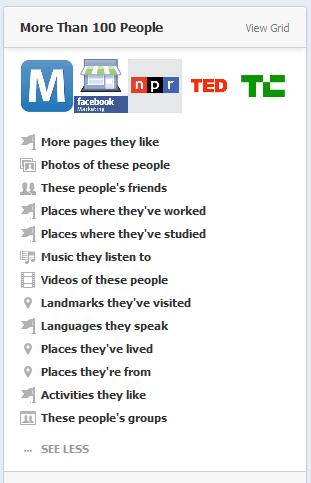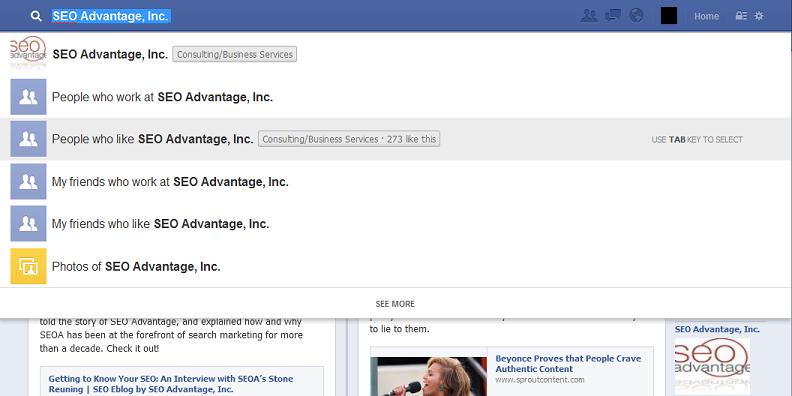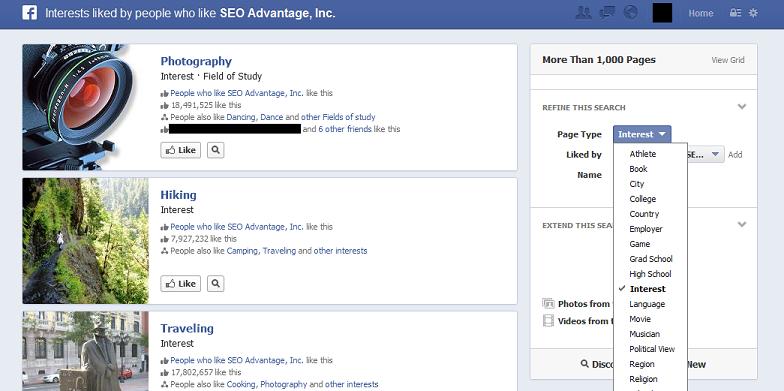 The new Facebook graph search feature, currently in beta, has been making waves all over the internet. Many are rightfully concerned about privacy, while others take issue with the new feature’s usability.
The new Facebook graph search feature, currently in beta, has been making waves all over the internet. Many are rightfully concerned about privacy, while others take issue with the new feature’s usability.
The privacy concerns can’t be ignored, particularly if you engage in ethical marketing. As we explore this tool and begin to utilize it in our online marketing efforts, we absolutely have to stay mindful of doing anything invasive or manipulative with consumer information. With that in mind, I’ve been using my access to the Facebook graph search beta to identify ways that we can use this new tool to advance ethical marketing efforts. Here’s what I found.
Facebook Graph Search can help you better target your content
One of the first things you notice once graph search becomes active on your Facebook page is that the blue bar at the top of the page is slightly larger, and the icons have been moved from the left side to the right.
Where the icons once were is now a search box, and clicking in that box opens a drop-down menu that changes based on where you originate your search. When I clicked from my homepage the options were tailored to me as an individual:
Not much potential for marketing here, but then I went to the SEO Advantage Facebook page to initiate a search. That’s when things started to get interesting:
Aha! The options change based on where you initiate the search. When I start at the Facebook page of a group I administrate, the search options include members of the group who live in my town and/or work at SEO Advantage. Starting from an interest page for a favorite TV show allows me to access a list of others who like the show, either throughout Facebook or only those on my friends list.
The company page, though, is where the magic happens. It’s where we learn about the people who support a business, and use that information to target our content. When you select the “people who like” option, it opens up the ability to learn what else those followers like, in very specific ways.
So, for example, let’s look at “interests.” In the case of SEO Advantage, the top three interests of our followers are photography, hiking and traveling:
These intersections give us the most valuable information we can have when it comes to targeting content. The interests above, for example, might not seem relevant from the standpoint of an SEO and online marketing firm, but that’s because you have to look deeper with this sort of information.
People who enjoy photography are visual. They’re more likely to respond to images. People who enjoy travel are an eclectic group, but they tend to enjoy new experiences. These people don’t want us to rehash information they’ve seen before; they want us to provide news and insights.
We can use this information to make analogies our followers will identify with more closely, and in numerous other ways to inform the content we create. Our followers like TechCrunch, so they follow technology news. Their most commonly liked bands are Pink Floyd and the Beatles, and their top movie choices are comedy, science fiction and documentaries. All of this information can be used in countless ways to make our content more useful and interesting for our followers, and for their friends and contacts who will see the content they’ve liked and shared, and I found it all without even looking at anyone’s name.
Privacy concerns and ethical marketing
People are right to be concerned about privacy, and indeed other websites have already outlined some of the ways that access to this information could prove problematic. It’s our choice, though, as marketers, to use the knowledge we can gain from Facebook’s graph search in a responsible and non-invasive way.
As you can see, there’s plenty of value to be had by looking into the generalities. As a bonus, everything we find out here lets us tailor better, user-focused content. It’s not about manipulating consumers. It’s about giving them content they can use, because that’s how you gain loyalty from the smart, savvy online audience.



